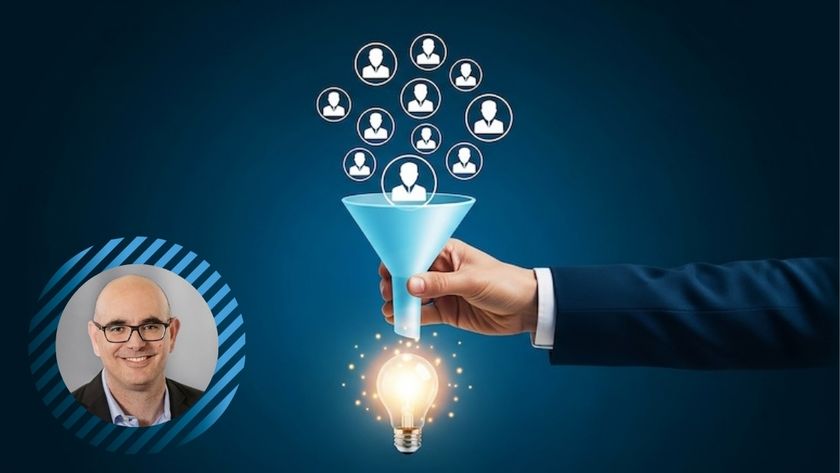For decades, B2B sales have revolved around a familiar playbook: capture leads, hand them to SDRs, and push them through a staged funnel. It worked…until it didn’t.
Today’s buyers are breaking that system. They’re not filling out forms, they’re not waiting days for a rep to call them back, and they’re certainly not clicking “Request a Demo” unless they’ve already made up their mind. Research shows that 70% of buyers complete their research before ever talking to sales. And increasingly, that research doesn’t even start on your website; it starts with artificial intelligence (AI) tools like ChatGPT, Claude, or Gemini, which scrape vendor content, compare options, and form recommendations before a human ever engages.
This shift has profound implications for go-to-market leaders. The funnel wasn’t just slowed down by inefficiencies; it’s being bypassed altogether.
From Process-First to Buyer-First
When I co-founded Totango more than a decade ago, we saw how companies were building entire teams and systems not because buyers wanted them, but because sellers needed them. Sales Development Reps (SDRs), qualification gates, and demo forms all existed to serve internal processes, not customer needs.
That dynamic has flipped. Modern buyers expect on-demand expertise, self-service clarity, and immediate trust-building. If your company can’t deliver that, they’ll go elsewhere, or their AI agent will.
Yet too many organizations are still using AI to do the old playbook faster: more automated emails, more LinkedIn spam, more robo-dials. That’s not innovation— that’s noise. The real opportunity is using AI to reimagine the buyer experience itself, turning every interaction into something intelligent, adaptive, and value-driven.
Why Websites Are Failing Buyers
Look at the average B2B website today. It’s often a maze of generic product pages, vague messaging, and the dreaded demo form. Critical information, pricing, competitor comparisons, and security certifications are either buried or missing altogether.
In our analysis of 1,150 B2B websites, nearly 30% of essential information was absent, leaving buyers (and their AI tools) unable to find answers to the most basic questions: What does this company do? How does it compare? Is it secure?
As a result, buyers move on. In a world where attention spans are short and alternatives are a click away, friction equals failure.
What “Intelligent” Really Means
When I say the future of B2B sales is about intelligent conversations, I don’t mean personalization in the superficial sense, slapping a first name into an email. True intelligence means meeting buyers at their level of intent and expertise, whether they’re a CTO asking about integrations or a CMO asking about ROI.
It also means being honest. Not every visitor is a fit. A truly intelligent sales motion should be able to say: this isn’t for you, and that’s okay. That’s how trust is built.
In practice, this intelligence should look like:
- Instant expertise: Buyers get founder-level answers in real time, without waiting for an SDR call.
- Adaptive formats: Some buyers want a whitepaper. Others want a 30-second video. Others want a conversation. Intelligence means knowing which is which.
- Continuous feedback: Every buyer question is a data point, surfacing blind spots in messaging, campaigns, and even product strategy.
AI-to-AI Buying Is Coming
Here’s the bold prediction: in a few years, buyers themselves may not even visit your website. Their AI agents will. Those agents won’t tolerate friction. They’ll expect structured, transparent, instantly accessible information.
That future may sound far off, but it’s already unfolding. When buyers ask ChatGPT, “What’s the best customer success solution?”, the answer isn’t pulled from a salesperson; it’s pulled from whatever content the AI can access and interpret.
If your company isn’t preparing for that, you risk becoming invisible.
The Trust Imperative
At the heart of all of this is trust. Buyers today are fatigued: fatigued from spam, from scripted cadences, from “contact sales” dead ends. They don’t want to be “qualified,” they want to be helped.
And here’s the paradox: AI, when done right, can actually build more trust than people. Buyers are often more honest with AI than they are with junior reps. They’ll ask harder questions. They’ll reveal objections earlier. They’ll engage more deeply if the answers they get are intelligent, specific, and immediate.
Where We Go From Here
This isn’t about replacing humans. It’s about rethinking their role. Salespeople shouldn’t be gatekeepers; they should be experts, closers, and advisors. AI should handle the repetitive, the immediate, and the foundational, creating the conditions for humans to do what only humans can: build relationships and close complex deals.
For CMOs, CROs, and GTM leaders, the mandate is clear: stop thinking about funnels, start thinking about conversations. Audit your digital touchpoints. Ask whether your website, your emails, your campaigns, and your entire buyer journey could pass the “AI test.” Could a buyer (or their AI agent) get real answers right now, without waiting?
If the answer is no, you’re already behind.
Closing Thought
The companies that win in the AI era won’t be the ones who spam faster or gate harder. They’ll be the ones who meet buyers where they are, with conversations that feel less like process and more like partnership.
The funnel isn’t dead. It’s just irrelevant. The future is smarter, more honest, and more human, precisely because it’s powered by AI.







